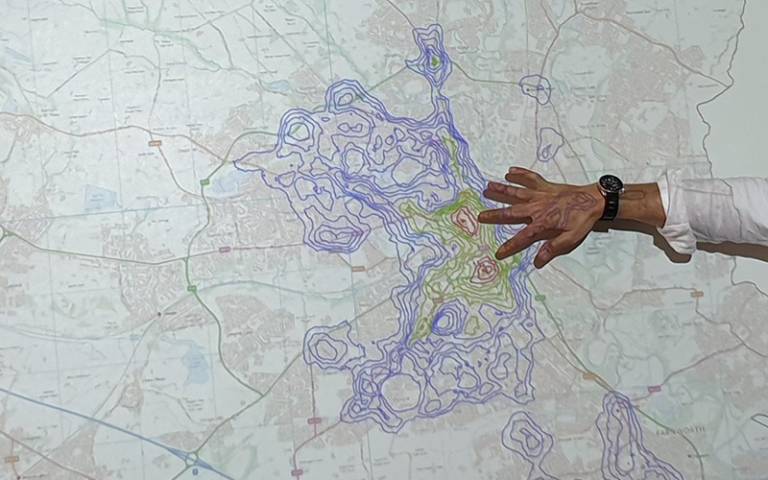The UCL-Osaka Kick-off Partnership Event includes participation from the DPU's Dr Daniel Oviedo
29 March 2019
DPU's Dr Daniel Oviedo participated in the UCL-Osaka Kick-off Partnership Event, organised by the Vice Dean International between 27-29 March.

DPU's Dr Daniel Oviedo participated in the UCL-Osaka Kick-off Partnership Event, organised by the Vice Dean International between 27-29 March. The event involved a series of academic workshops and joint work sessions with a large delegation of Japanese academics from Osaka University in relation to various areas of research, including the built environment, health and Sustainable Development. The UCL-Osaka partnership aims to yield new research collaboration supported by a bilateral funding scheme for research exchange and coproduction called UCL-Osaka University Strategic Partner Funds (https://www.ucl.ac.uk/global/node/115/index), which will be launched later this year.
Dr Oviedo represented the DPU in one of three parallel academic workshops, entitled: “Sustainable Urban Design - University and Society” where he presented on conceptual, methodological and practical considerations for leapfrogging urban mobility trajectories towards sustainable urban mobility in Sub-Saharan African cities. Daniel’s presentation highlighted the need for frameworks and partnerships grounded in local realities and existing governance networks in cities such as Maputo and Freetown. The presentation built on the GCRF-funded T-SUM project (www.t-sum.org), led by Prof Peter Jones at UCL Civil Engineering, where Prof. Caren Levy and Dr Oviedo from the DPU are co-investigators. The workshop was attended by 9 delegates from Osaka University and academics from UCL Engineering, the UCL Centre for Transport Studies, The Bartlett School of Architecture, and the DPU.
Topics covered by other workshop presentations from both UCL and Osaka University academics included walkability and street design for inclusivity and accessibility, informal urbanisation in west Africa, socio-technical transitions, vehicle automation, and restructuring of mobility systems and policies for improving inclusiveness and sustainability. Discussions flagged the relevance of transdisciplinary work and community engagement in urban design and research, the potential of “gamification” of interactions for research and practice with socially vulnerable citizens, and the relevance of cultural and social values and heritage on the definition of formal and informal development and mobility behaviours. Researchers highlighted the relevance of comparative and cross-regional research and non-conventional data production and collection for strengthening local and global agendas concerned with urban development.
On 29th March, the group held a common report back session from the parallel academic workshops where potential collaborations were identified, followed by presentations by UK and Japan funders of schemes for supporting joint research agendas both inside and out of the UK and Japan.
 Close
Close

